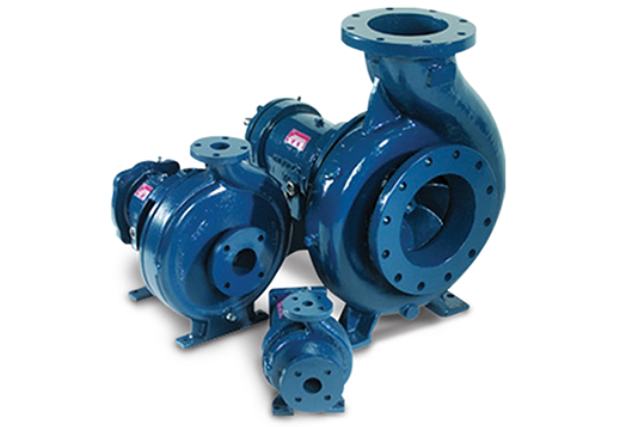API vs. Non-API Pumps: Which is Right for Your Application?

The choice between API (American Petroleum Institute) and non-API pumps can be a critical decision. Each type offers distinct advantages and disadvantages depending on the specific application requirements. Understanding the differences between them is essential for selecting the most suitable option for your needs.
API Pumps: precision and reliability
API pumps are designed and manufactured according to stringent standards set forth by the American Petroleum Institute. These standards ensure precision engineering, high-quality materials, and rigorous testing, making API pumps renowned for their reliability and durability in demanding applications.
One of the primary advantages of API pumps is their suitability for handling high-pressure and high-temperature fluids, making them indispensable in industries such as oil and gas, petrochemical, and refining. Additionally, API pumps are engineered to withstand corrosive and abrasive environments, offering long-term performance and minimal maintenance requirements.
Moreover, API pumps undergo thorough testing protocols, including performance testing, hydrostatic testing, and mechanical running tests, ensuring compliance with industry standards and regulations. This level of quality assurance provides peace of mind to operators and minimises the risk of unexpected downtime or equipment failure.
Non-API pumps: versatility and cost-effectiveness
Non-API pumps, while not governed by the stringent standards of the API, offer versatility and cost-effectiveness for a wide range of applications. These pumps are often more customisable and adaptable to specific requirements, making them suitable for diverse industries and fluid handling scenarios.
One of the key advantages of non-API pumps is their flexibility in design and configuration. Manufacturers can tailor these pumps to meet unique application needs, whether it involves handling different types of fluids, accommodating specific flow rates, or operating under varying environmental conditions. This versatility makes non-API pumps ideal for industries such as water treatment, food and beverage, and pharmaceuticals.
Furthermore, non-API pumps typically come at a lower initial cost compared to their API counterparts, making them a preferred choice for budget-conscious projects or applications where the highest level of precision and reliability is not paramount. However, it's essential to consider long-term operating costs and maintenance requirements when evaluating the overall cost-effectiveness of non-API pumps.
Choosing the right pump for your application
When determining whether an API or non-API pump is right for your application, several factors must be considered:
Operating conditions: Evaluate the fluid properties, temperature, pressure, and environmental conditions in which the pump will operate. API pumps excel in high-pressure and high-temperature environments, while non-API pumps offer greater versatility for diverse operating conditions.
Reliability requirements: Consider the criticality of the application and the consequences of pump failure. API pumps are renowned for their reliability and undergo rigorous testing to ensure performance under demanding conditions, making them suitable for mission-critical applications.
Budget constraints: Assess the initial investment cost as well as long-term operating and maintenance expenses. Non-API pumps may offer a more cost-effective solution upfront, but API pumps often provide superior reliability and performance over the equipment's lifecycle.
Customisation needs: Determine whether the pump requires specific customisation to meet application requirements. Non-API pumps offer greater flexibility in design and configuration, allowing for tailored solutions to unique challenges.
Conclusion
The choice between API and non-API pumps depends on the specific requirements of your application. API pumps offer precision engineering, reliability, and durability, making them ideal for high-pressure and high-temperature environments in industries such as oil and gas. Non-API pumps, on the other hand, provide versatility and cost-effectiveness for a wide range of applications, with greater flexibility in design and customisation.
Whether you opt for an API pump for its precision or a non-API pump for its versatility, both options play a vital role in fluid handling processes across various industries, from hose pumps in water treatment facilities to screw pumps in food processing plants.

